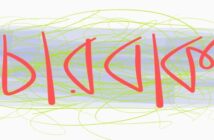 অলঙ্করণে হিম ঋতব্রত
অলঙ্করণে হিম ঋতব্রত
Tagore: You have been busy, hunting down with mathematics, the two ancient entities, time and space, while I have been lecturing in this country on the eternal world of man, the universe of reality.
ঠাকুর: আপনি অঙ্কশাস্ত্রের দুইটা প্রাচীন সত্তা, স্থান এবং কাল-এর অনুসন্ধানে নিজেকে ব্যাস্ত রেখেছেন। আর আমি এদেশে পরমপুরুষের অনন্ত-শাশ্বত বিশ্ব-সত্যের জগৎ নিয়ে বক্তৃতা দিয়ে ঘুরছি।
Einstein: Do you believe in the divine isolated from the world?
আইনষ্টাইন: আপনি ঐশী শক্তিকে বাস্তব জগৎ থেকে বিচ্ছিন্ন হিসেবে বিশ্বাস করেন?
Tagore: Not isolated. The infinite personality of man comprehends the universe. There cannot be anything that cannot be subsumed by the human personality, and this proves that the truth of the universe is human truth.
ঠাকুর: বিচ্ছিন্ন করে নয়। মানুষের অনন্ত ব্যাক্তিসত্তা বিশ্বপ্রকৃতিকে অনুধাবন করে। এমন কিছুই নেই যা মানবসত্তা বুঝতে অপারগ হয়, এবং এটাই প্রমাণ করে যে বিশ্বজগতের সত্য মানবসত্তার সত্য।
Einstein: There are two different conceptions about the nature of the universe – the world as a unity dependent on humanity, and the world as reality independent of the human factor.
আইনষ্টাইন: মহাবিশ্বের প্রকৃতি সম্বন্ধে দুইটা ধারণা রয়েছে— বিশ্বসত্তার ঐক্য মানবিকতার ওপর নির্ভরশীল, এবং বিশ্বসত্তার বাস্তবতা মানবিক কার্য্যকারণের ওপর স্বনির্ভর।
Tagore: When our universe is in harmony with man, the eternal, we know it as truth, we feel it as beauty.
ঠাকুর: যখন আমাদের বিশ্বজগৎ মানুষের সাথে সুসমন্বিত হয়, তখন সেটা হয় শাশ্বত, তখন তাকে আমরা সত্য বলে জানি, তাকে সুন্দর হিসেবে অনুভব করি।
Einstein: This is a purely human conception of the universe.
আইনষ্টাইন: এটা বিশ্বজগৎ সম্পর্কে পুরাপুরি মানবিক ধারণা।
Tagore: The world is a human world – the scientific view of it is also that of the scientific man. Therefore, the world apart from us does not exist; it is a relative world, depending for its reality upon our consciousness. There is some standard of reason and enjoyment which gives it truth, the standard of the eternal man whose experiences are made possible through our experiences.
ঠাকুর: এই জগৎ হচ্ছে মানবিক জগৎ, বিজ্ঞানের দৃষ্টিতে বিজ্ঞানমনষ্ক মানুষেরও জগৎ। অতএব আমাদের কাছ থেকে জগৎকে সরিয়ে রাখলে জগতের অস্তিত্ব থাকে না; এটা একটা আপেক্ষিক জগৎ এবং এর বাস্তবতা আমাদের চৈতন্যনির্ভর। কিছু আদর্শিক কারণ এবং আনন্দ আমাদের কাছে সত্যকে উপস্থাপিত করে। আদর্শ শাশ্বত মানুষ সেই, যার অভিজ্ঞতা সম্ভবপর হয়ে ওঠে আমাদের অভিজ্ঞতার মধ্য দিয়ে।
Einstein: This is a realization of the human entity.
আইনষ্টাইন: এটা মানবসত্তার উপলব্ধি।
Tagore: Yes, one eternal entity. We have to realize it through our emotions and activities. We realize the supreme man, who has no individual limitations, through our limitations.
Science is concerned with that which is not confined to individuals; it is the impersonal human world of truths. Religion realizes these truths and links them up with our deeper needs. Our individual consciousness of truth gains universal significance. Religion applies values to truth, and we know truth as good through own harmony with it.
ঠাকুর: হ্যাঁ, এটা একটা অনন্তসত্তা। এটাকে আমাদের উপলব্ধি করতে হবে আমাদের আবেগ এবং কার্য্যকলাপের মধ্য দিয়ে। আমরা উপলব্ধি করি এমন পরমপুরুষকে, আমাদের সীমাবদ্ধতার বিচারে যার কোনো সীমাবদ্ধতা নাই।
ব্যাক্তির কাছে যা সীমাবদ্ধ নয়, বিজ্ঞানের বিষয় সেটাই। এটা একটা নৈর্ব্যক্তিক সত্যের বিশ্বজগৎ। ধর্ম্ম এই সকল সত্যকে বাস্তবায়িত করে এবং আমাদের গভীরতর প্রয়োজনসমূহের সাথে সংযোগ ঘটায়। আমাদের ব্যাক্তিগত সত্যের সজ্ঞানতা বিশ্বজনীন মূল্য লাভ করে। ধর্ম্ম সত্যের মূল্যকে প্রয়োগ করে এবং আমরা এর সাথে নিজেদের মিলটাকে সুসমন্বিত করে সত্যকে মঙ্গলময় হিসেবে জানতে পারি।
Einstein: Truth, then, or beauty, is not independent of man?
আইনষ্টাইন: সত্য, তারপর, বা সৌন্দর্য্য, এগুলো কি মানুষের অস্তিত্ব থেকে আলাদা নয়?
Tagore: No, I do not say so.
ঠাকুর: না, আমি তা বলছি না।
Einstein: If there were no human beings any more, the Apollo Belvedere no longer would be beautiful?
আইনষ্টাইন: যদি মানুষজাতির কেউ না থাকত, তাহলে কি বেলভিডিয়ারের অ্যাপোলো সুন্দর বিবেচিত হত না?
Tagore: No!
ঠাকুর: না।
Einstein: I agree with this conception of beauty, but not with regard to truth.
আইনষ্টাইন: সৌন্দর্য্যবোধের এই ধারণা সম্পর্কে আমি আপনার সাথে একমত, কিন্তু সত্য সম্পর্কে একমত নই।
Tagore: Why not? Truth is realized through men.
ঠাকুর: কেন নয়? সত্য তো মানুষের মধ্যে উপলব্ধির যোগ্য হয়ে ওঠে।
Einstein: I cannot prove my conception is right, but that is my religion.
আইনষ্টাইন: আমার ধারণা যে ঠিক, সে বিষয়ে আমি কোন প্রমাণ দিতে পারব না। কিন্তু এটাই আমার ধর্ম্মবিশ্বাস। আমরা তা ব্যাক্তিগতভাবে উপস্থাপন করি— আমাদের ভ্রান্তি এবং অন্ধ অনুকরণসমূহের দ্বারা, সৃষ্ট অভিজ্ঞতার দ্বারা, আধ্যাত্মিক চেতনার দ্বারা।
Tagore: Beauty is in the ideal of perfect harmony, which is in the universal being; truth is the perfect comprehension of the universal mind. We individuals approach it through our own mistakes and blunders, through our accumulated experience, through our illumined consciousness. How otherwise can we know truth?
ঠাকুর: সৌন্দর্য্য হল যথার্থ সমন্বয়ের আদর্শ, যা বিশ্বচরাচরে বিদ্যামান। সত্য হল বিশ্বসত্তার মননশীলতার যথার্থ উপলব্ধি। এ ছাড়া আমরা কিভাবে সত্যকে চিনতে পারব?
Einstein: I cannot prove, but I believe in the Pythagorean argument, that the truth is independent of human beings. It is the problem of the logic of continuity.
আইনষ্টাইন: আমি প্রমাণ করতে পারব না। কিন্তু আমি পিথাগোরাসের উপপাদ্যে বিশ্বাসী, যে সত্য মাননবসত্তার নির্ভরতামুক্ত। এটা অবিচ্ছন্ন যুক্তির সমস্যা।
চলমান …
সূত্রঃ সংগীতচিন্তা। রবীন্দ্রনাথ ঠাকুর। বিশ্বভারতী। ২৫ বৈশাখ ১৩৯২।
মাহবুবুল ইসলাম
জন্ম: ১৫ সেপ্টেম্বর ১৯৮১।পৈতৃক নিবাস : মাধবপুর, হবিগঞ্জ।
প্রকাশিত গ্রন্থ: জল ও জলোচ্ছ্বাস (কবিতা) (প্রকাশ সাল— ২০১৯, প্রকাশক— চয়ন)।
শিশির-হরফ (কবিতা) (প্রকাশ সাল— ২০২০, প্রকাশক— চারবাক)।
{সত্তা ও সৌন্দর্য্য নিয়ে রবীন্দ্রনাথ ঠাকুর এবং আইনষ্টাইনের কথোপকথন || অনুবাদ : মাহবুবুল ইসলাম [বঙ্গীয় শব্দকোষ (শ্রী হরিচরণ বন্দ্যোপাধ্যায়), বঙ্গীয় শব্দার্থকোষ, ক্রিয়াভিত্তিক-বর্ণভিত্তিক শব্দার্থ বিধি (কলিম খান-রবি চক্রবর্তী) ও প্রকৃতিপুরুষ ভাষাদর্শন অনুসৃত] চারবাক-এর বানান রীতিতে (যথাসম্ভব) সম্পাদিত ও প্রকাশিত হল।
— সম্পাদকীয়}



